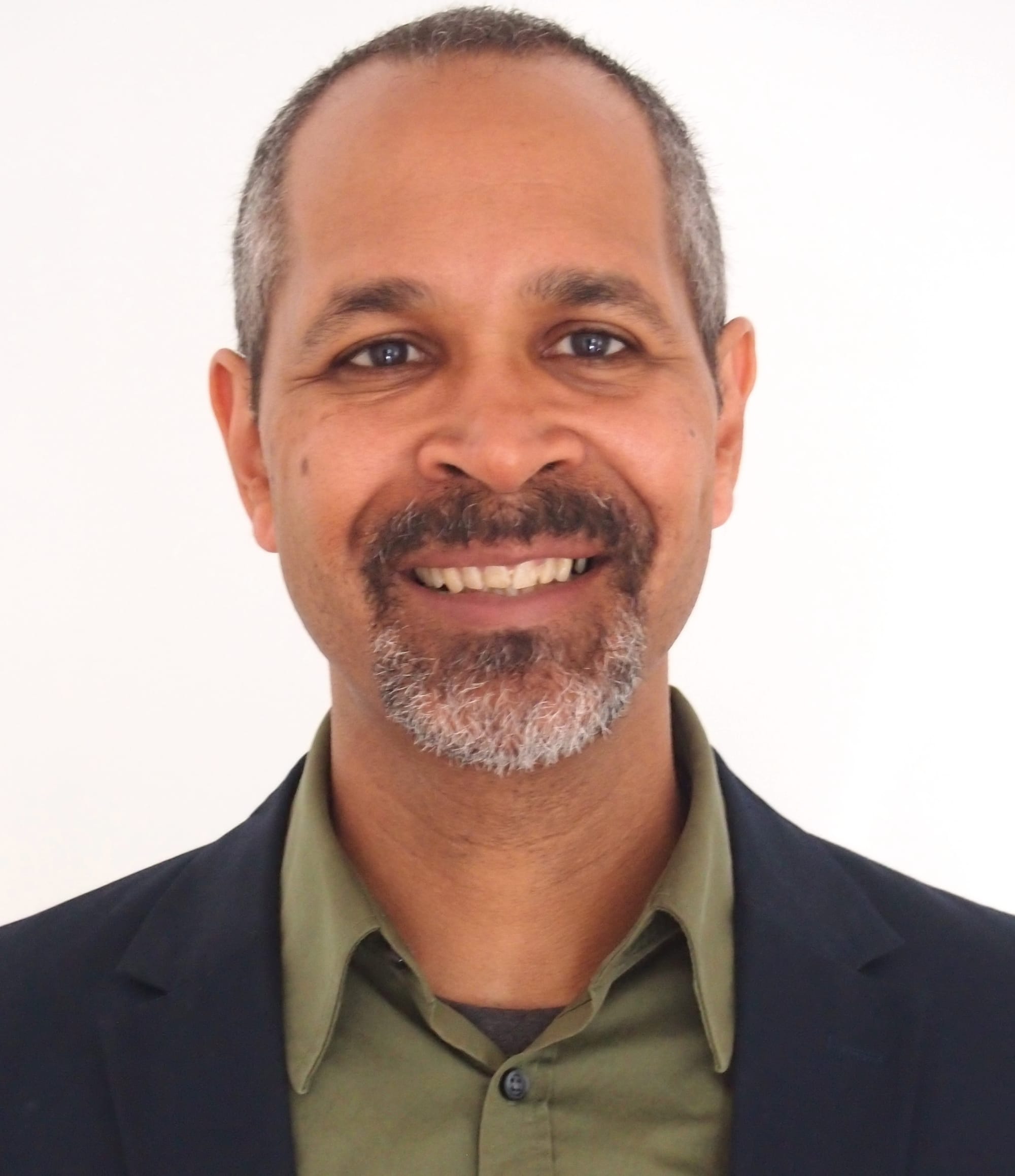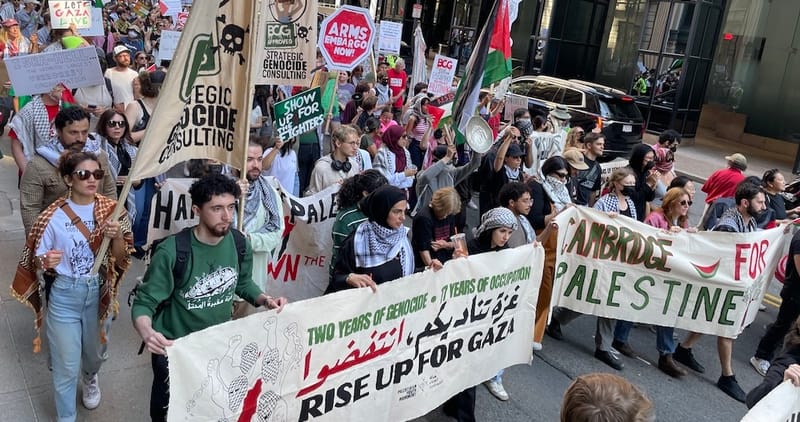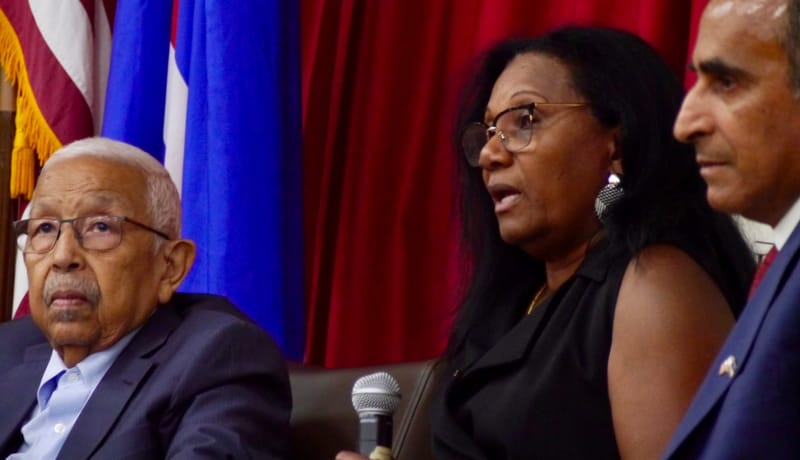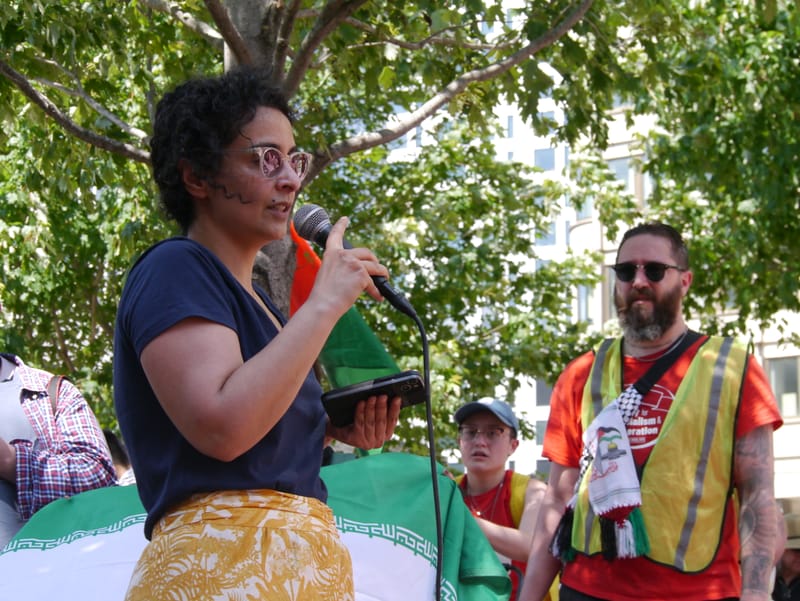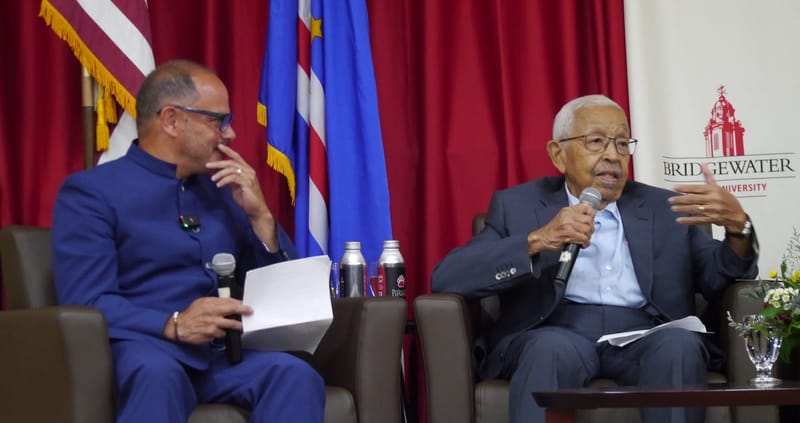Protestors target Capital One's ties to Israeli arms manufacturer
Sunday, a crowd of several hundred protested in front of the Capital One branch with a demonstration that shut down traffic in Harvard Square.
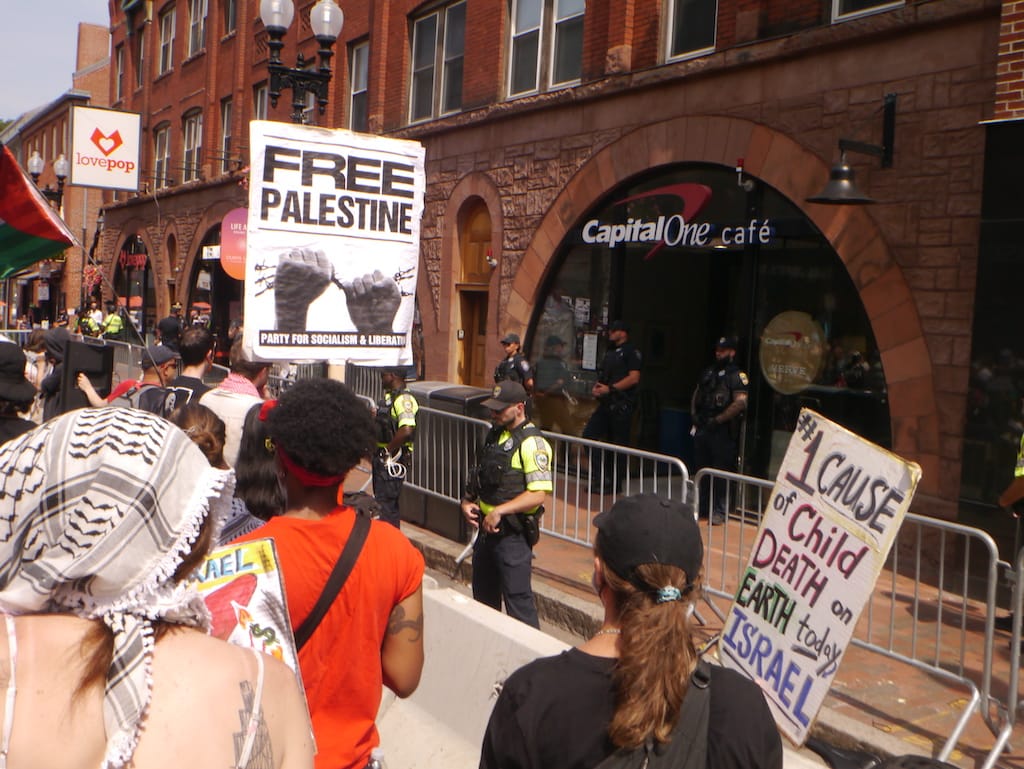
On August 2, Cambridge police arrested three demonstrators and deployed pepper spray on several during a protest in front of a Capital One bank branch on JFK Street in Harvard Square.
The demonstrators were there to protest the Bank’s loans to Elbit Systems, an Israeli arms manufacturer that has produced cluster munitions, lethal drones and white phosphorus munitions used by the Israeli military against civilian populations.
Sunday, a larger crowd of several hundred were back at the Capital One branch with a demonstration that shut down traffic in Harvard Square.
“It’s necessary that people continue mobilizing, showing that the streets are still alive because resistance to U.S. involvement in the genocide, particularly when American companies like Boston Consulting Group have co-created a malicious plan to expel Palestinians from Gaza and created these aid distribution sites that are described as death traps by human rights experts,” said Lea Kayali, an organizer with the Palestinian Youth Movement said, before the demonstrators marched from the Cambridge Common to JFK Street.
Richard Solomon, a graduate student at MIT who was among the demonstrators struck in the eyes with pepper spray August 2, said the crimes of the Israeli military, which has been accused of human rights violations in the targeting of civilians and civilian infrastructure in its 22-months-long siege of Gaza, far eclipse any violations of nonviolent protesters.
“The bigger question is, why is the Cambridge Police Department defending a company that is complicit in human rights violations?” he said.
Solomon noted that the London-based Barclays Bank has divested its shares of Elbit Systems and MIT ended a controversial research collaboration with the firm.
“The tide is shifting, in my opinion,” he said.
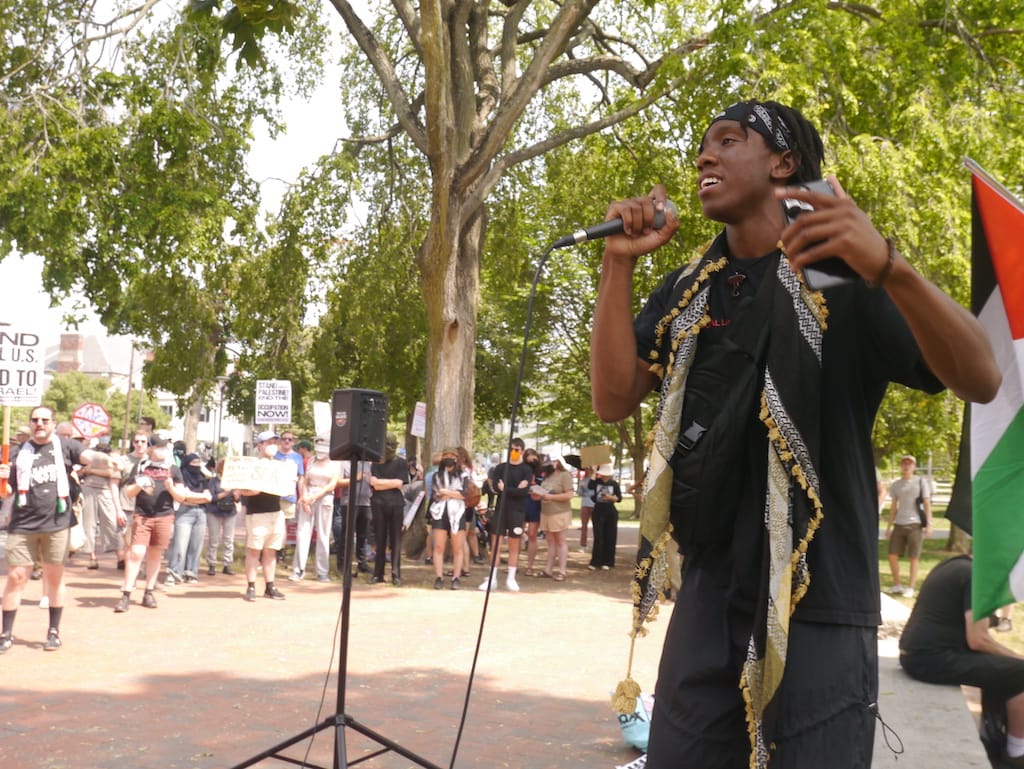
The demonstrations on August 2 and Sunday fit into a tactic adopted by groups opposing Israel’s occupation of Palestinian territories referred to as boycott, divestment and sanctions (BDS). Locally, activists have scored two victories against Elbit systems in recent months. In addition to MIT ending its research collaboration with the firm, demonstrators last year engaged in a series of pickets in front of an Elbit Systems office in Central Square. The firm vacated that location in August of last year.
Those small victories aside, the BDS movement faces an uphill battle in the U.S. There are 28 U.S. states that have made boycotting companies doing business with Israel illegal, including New Hampshire and Rhode Island.
The activists who rallied in Cambridge Sunday said Israel’s block on food aid entering Gaza and the resulting famine have created more urgency in their movement.
“We’re seeing the forced starvation of the people of Gaza,” said Kojo Acheampong, a Harvard University student and member of the Palestinian Solidarity Committee. “We’re seeing the U.S. government back the starvation of the people of Gaza. We’re in a dire moment.”
Firing up the crowd on the Cambridge Common, Alex, who declined to give his last name, spoke on behalf of the group Jewish Voice for Peace.
“The genocide needs the cooperation of state and local governments and their police to repress the opposition, all in the name of law enforcement,” he said. “But we don’t oppose genocide because it’s illegal. We oppose genocide because it’s immoral, it’s unconscionable and because we believe in justice, equality and dignity for all people.”


